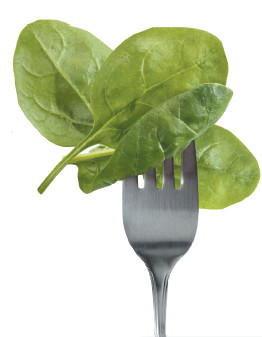
Tips to leverage neuroplasticity to maintain cognitive fitness as you age

Can white noise really help you sleep better?

Celiac disease: Exploring four myths

What is prostatitis and how is it treated?

What is Cushing syndrome?

Exercises to relieve joint pain

Think your child has ADHD? What your pediatrician can do

Foam roller: Could you benefit from this massage tool?

Stepping up activity if winter slowed you down

Common causes of cloudy urine
Staying Healthy Archive
Articles
The benefits of vitamin supplements
Most people do not need to take vitamin supplements, but in some situations, taking the pills may provide health benefits. |
Ask the doctor
Q. Are vitamin supplements (like vitamin D) good for your health, and can you tell me who might benefit from taking the pills?
The benefits and risks of rediscovering your favorite sport
Playing a sport in our older years is great exercise. But before stepping onto a playing eld, make sure to address physical limitations. |
Competition is great for older adults, but don't skip training camp before your season starts.
Wag more: A tale of healthy living
Animal companions offer emotional,social, and health benefits to their humans. Research suggests that dog owners are more likely to meet recommended physical activity goals and tend to have lower blood pressure than people who don't have dogs. |
Canine companionship yields heartfelt benefits for many people.
Sometime around the Stone Age, a few docile wolves crept out of the woods to warm themselves by the human campfire. The rest, as they say, is history. Today, nearly half of U.S. households include at least one canine family member. For most owners, the responsibilities and costs are easily outweighed by the unmatched love and devotion that dogs can offer.
Mediterranean diet: Good for your mind and your heart
Plant-based compounds known as polyphenols are plentiful in the Mediterranean diet, which may explain its health benefits. |
Extra-virgin olive oil and nuts seem to contribute to the benefits.
Moderate drinking may harm older people's hearts
A drink or two a day has long been touted as beneficial for the heart. But new research suggests that for older people, even moderate drinking may cause worrisome changes in the heart's structure and function. Moderate drinking is defined as a drink per day for women and two drinks a day for men.
The study included nearly 4,500 adults with an average age of 76 years. They drank varying amounts of alcohol, ranging from none to 14 or more drinks per week. Researchers looked at the size, structure, and function of different parts of their hearts using cardiac imaging techniques.
Ask the doctor: Stretching before exercise
Q. Should I stretch before or after my workout to help prevent muscle injuries and soreness? I've gotten conflicting advice on this.
A. We all remember the importance placed on stretching in our high school physical education classes. However, recent expert opinion has moved away from static stretching before activity and toward a gradual and active warm-up period before exercise. Stretching a healthy muscle before exercise does not prevent injury or soreness.
How to sneak in more dietary fiber
A fiber-rich diet includes a variety of fruits, vegetables, and whole grains. Image: Thinkstock |
Meeting fiber goals improves overall nutrition and helps with regularity, even without dramatic dietary changes.
Ask the doctor: Are supplements good for health?
Q. Why can't doctors decide if vitamin supplements are good for your health, or not?
A. You might think that it would be simple for doctors to determine if vitamin supplements are good for your health. Alas, it's not. Here's why.
Ways to keep your relationship strong
Spend time doing activities |
Give your relationship a tune-up by assessing strengths, letting go of disappointments, and doing things together.
Add more nutrient-dense foods to your diet
Foods such as kale, cantaloupe, and quinoa can boost the amount of nutrients you consume without increasing calories.
Getting enough nutrients through diet is challenging as we age. Our bodies don't absorb nutrients as well as they once did, yet we tend to need fewer calories and eat less. So it's important to make the most out of the foods we do eat. One way is by choosing more nutrient-dense foods, which provide more nutrition bang for the calorie buck. "They contain an abundance of nutrients and other healthful substances—vitamins and minerals, fiber, lean protein, and unsaturated fats—but are not excessive in calories. This is compared with foods of low nutrient density that are high in calories," says Liz Moore, a registered dietitian at Harvard-affiliated Beth Israel Deaconess Medical Center.

Tips to leverage neuroplasticity to maintain cognitive fitness as you age

Can white noise really help you sleep better?

Celiac disease: Exploring four myths

What is prostatitis and how is it treated?

What is Cushing syndrome?

Exercises to relieve joint pain

Think your child has ADHD? What your pediatrician can do

Foam roller: Could you benefit from this massage tool?

Stepping up activity if winter slowed you down

Common causes of cloudy urine
Free Healthbeat Signup
Get the latest in health news delivered to your inbox!
Sign Up











